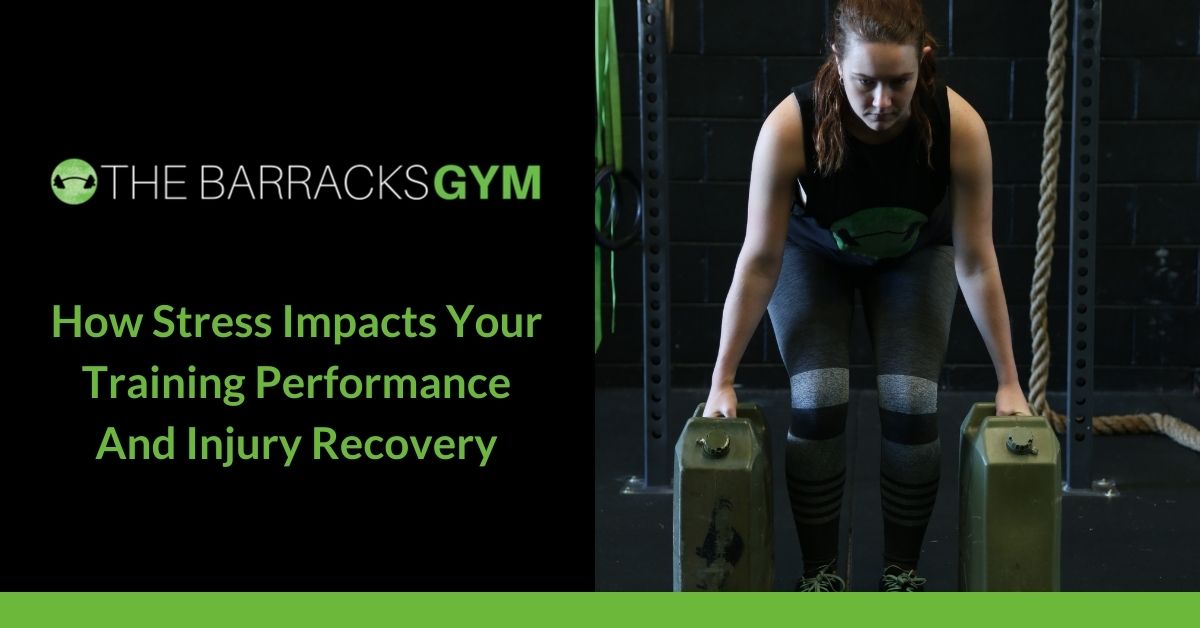|
Have you ever had an injury where you wondered what could have gone wrong? How about a sudden drop in your workout performance for no apparent reason? Often the culprit in unexplained performance and recovery issues is stress. In this article, we'll aim to give you an idea of what your body may experience as stress, how it affects performance and recovery and what you can do to prevent extended periods of being stressed out. What Is Stress?Stress is not a diagnosis but a process. We experience stress in our bodies when there is a noticeable imbalance between the demands on the body and the body's ability to cope with that demand. Stress can also be described as our body's reaction to changes in our lives, no matter how small or big. That change can cause physical, emotional or psychological strain. Whichever you experience, your body's response will be similar regardless. Stress differs from person to person. An event that devastatingly impacts one person can be a mere inconvenience to someone else. Stress is not always a bad thing, of course, as stress can be something that some people thrive on to get things done. In a clinical sense, stress refers to situations that can cause discomfort and distress. It can lead to prolonged injury and mental health problems. Stress can impact or even exacerbate anxiety and depression, too. It can contribute to physical illnesses, putting strain on the heart and other organs. How Does Stress Increase The Likelihood of Injuries? Now, not all stress is bad stress, and not everybody reacts the same way to stress. This is true for military personnel and athletes who train hard to improve their sports performance. You may experience more injuries during high frequency and intensity training periods, and there's a reason for that. The workouts may be longer, more intensive and occur more frequently. If your body isn't conditioned to handle that increased amount of physical stress, you're like going to get an injury when you experience higher stress levels in other areas of your life. You might wonder how that can happen, but your body reacts to all stressors the same way. Even though working out is claimed to relieve stress, it can aggravate its harmful effects in many cases. How Does Stress Prolong The Recovery Process? When you are recovering from an injury, understanding how stress can affect your healing process is essential. Whether you injured yourself during training, on duty, or you just had an operation, the critical factors to quick recovery your doctor will highlight are rest, relax and nutritious food. Increased and prolonged stress can make it hard for your body to heal tissue damage and thus slow down your recovery. One of the hormones your body produces when you are stressed is cortisol. The higher the level in your body, the more sensitive you'll become to pain. Stress Management TechniquesPrevention is better than cure, and stress management can prevent any additional stress on the body. Some of the best stress management techniques include the following:
ConclusionA big part of stress management is understanding where the stress is coming from in the first place. This can help you know what situations you can and cannot control and prepare yourself for potentially stressful situations.
Keeping yourself as healthy as possible with exercise, regular relaxation and nutrition is crucial for keeping on top of stress management. You need to be at the top of your physical game, and that means being smart about the stress put on your body. If you need expert help in how to structure your workouts, feel free to grab your 2 Week Trial here!
0 Comments
Leave a Reply. |
Most PopularTrusted PartnerWe work with the best service provider for Defence and First Responders.

Get SocialCategoriesArchives
January 2024
|
© COPYRIGHT 2024. ALL RIGHTS RESERVED.


 RSS Feed
RSS Feed